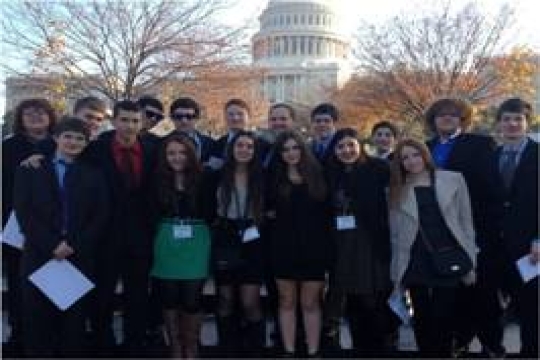
You know when you write or read a word too many times and it starts to look funny? Like – is that really how that word is spelled? Do I even remember what this word means? That happened to me this weekend with a word (or, more accurately, a transliteration of a word) that I previously hadn’t used very often: “l’taken.” L’taken is the name of the RAC’s program for high school-aged students who come to D.C. and learn about public policy issues, explore the Jewish values surrounding these issues and embody the skills of an effective advocate.
This past weekend was our first L’taken conference of the season – and I certainly used the word on numerous occasions. “Welcome to L’taken!” “These students are participating in our L’taken program.” “No, it’s pronounced l-ta-KEN, not l-TA-ken.” My iPhone even autocorrects to “ltaken” – a surefire sign that it’s been sufficiently incorporated into my vocabulary.
But few times over this weekend did I truly think about the meaning behind this title. “L’taken” in Hebrew means to correct or to repair. It is the infinitive verb form of the gerund “tikkun” – as in “tikkun olam,” or repairing the world. Why this title? What exactly did we repair or correct this weekend?
There’s a simple (albeit ambitious) answer that was likely the impetus behind the choice of name: we did our part to repair the world. As our 400 students learned about and then lobbied their senators and representatives in support of topics as varied as rights for the disabled, increased abortion access, tax credits for clean energy, ending torture or protecting food stamps, they made their voices heard and hopefully made a difference in how members of Congress will view and advocate for these crucial issues.
But for me, the word “l’taken” can refer to a bigger and more personal process I underwent this weekend. Over the past few days, my cynicism was “corrected.” My faith was “repaired.” As I watched students become passionate about issues facing our country, and as I heard their speeches filled with compelling personal stories and articulate legislative asks I felt that my perspective—my world-view—had been changed. And if these students changed a single life, then hadn’t they—in their own way—changed a world?
Related Posts

How Judaism Inspires My Mental Health Advocacy

Democracy Is a Promise We Renew Every Day

